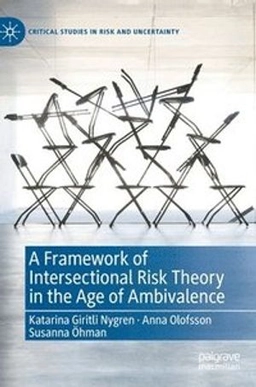

A framework of intersectional risk theory in the age of ambivalence
- Utgiven: 2020
- ISBN: 9783030335267
- Sidor: 199 st
- Förlag: This Springer imprint is published by Springer Nature
- Format: Häftad
- Språk: Engelska
Om boken
Åtkomstkoder och digitalt tilläggsmaterial garanteras inte med begagnade böcker
Mer om A framework of intersectional risk theory in the age of ambivalence (2020)
2020 släpptes boken A framework of intersectional risk theory in the age of ambivalence skriven av Katarina Giritli Nygren. Den är skriven på engelska och består av 199 sidor. Förlaget bakom boken är This Springer imprint is published by Springer Nature.
Köp boken A framework of intersectional risk theory in the age of ambivalence på Studentapan och spara uppåt 11% jämfört med lägsta nypris hos bokhandeln.
Referera till A framework of intersectional risk theory in the age of ambivalence
Harvard
Oxford
APA
Vancouver



















